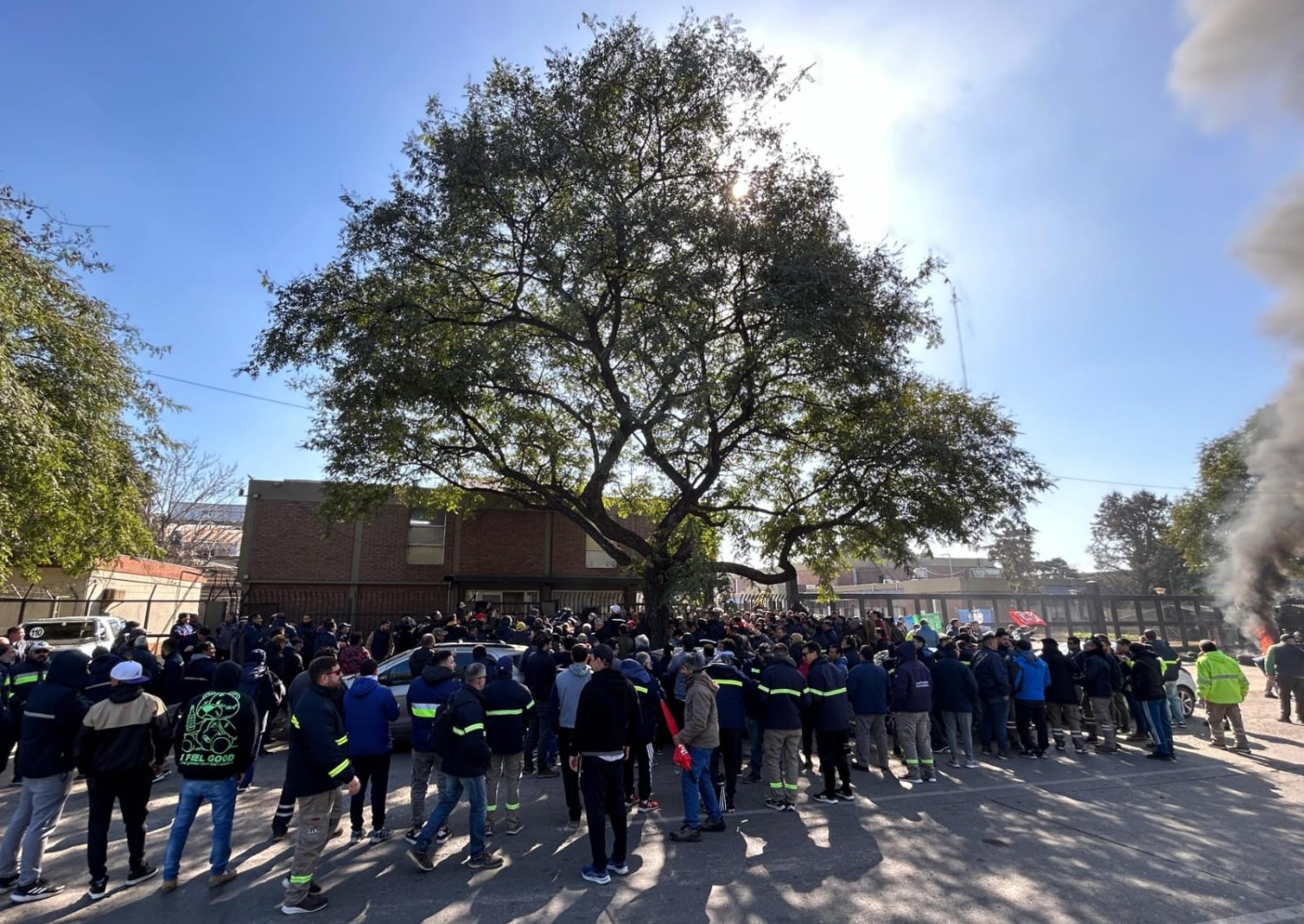
This Monday at noon the national government issued the compulsory conciliation in the conflict that is taking place in the union that brings together the workers of the sector. It is the seventh consecutive day of strike headed by the Oil Federation and the San Lorenzo Unionwhich has about 20 thousand members that day after day move one of the springs of the national economy.
“These companies play with the needs of workers, but it hurts them to lose by not producing,” says Daniel Yofra, Secretary General of the Oil Federation. pic.twitter.com/hxseaiHD6N
— The Left Daily (@izquierdadiario) August 12, 2024
For seven days in a row the strike, called by the Federation and unions such as that of Employees and Workers of the San Lorenzo Oil Millwas overwhelming in all the plants of the country. That is why the mandatory conciliation finds them in a good position to maintain its list of demands. And if companies refuse to meet those claims, it is highly likely that the measures will continue after the fifteen days deadline of the measure adopted by the Executive Branch.
La Izquierda Diario has been covering the conflict since it began in the early hours of the morning of August 6. Today it was present at the assembly held at the gates of Molinos in the city of Rosario. There it spoke with union leaders, including Daniel Yofra (Federation) and Marco Pozzi (Soear).
We spoke with Marco Pozzi, General Secretary of the oil workers’ union, about how the conflict arose and what the workers are fighting for. pic.twitter.com/74OFwnEqLn
— The Left Daily (@izquierdadiario) August 12, 2024
Mandatory conciliation, dictated by the National Directorate of Labor Relations and Regulationswill last fifteen days during which the parties must meet to find a solution to the conflict. Within this framework, a meeting was called for Wednesday “negotiating table” between workers’ representatives and those of companies.
Oil workers demand a minimum salary of $1,550,000 for an entrant. But until now Companies refuse to give the corresponding increases. At the same time, the workers’ sector repudiates that these same employers are pushing for a new devaluation, since “it will affect workers, the unemployed and retirees.” And they argue that what they are asking for is nothing more than an amount that meets the basic needs of working families.
Octavio Crivaro, leader of the PTS in the Left Front, accompanying the oil workers’ strike. pic.twitter.com/adloRZjKmN
— The Left Daily (@izquierdadiario) August 12, 2024
The Government of Javier Miley arbitrarily and unilaterally set the minimum, vital and mobile salary for August at $260 thousand. With the official bar set at levels of indigence, the oil workers’ claim may seem a little “high”. But they are clear in stating, with reason, that a minimum salary should serve a family to comer, get dressed, travel, own a house, right to recreation already satisfy all your needs. “We are not willing to accept a lower salary to maintain our profits,” oil workers’ delegates recently told The Left Daily.
These are employers who make fortunes, like Cargill, Dreyfus, Household appliances, Cofco, Bunge o Moreno. This is demonstrated by Lucho Aguilar In the note published this Sunday, entitled “The oil strike that shakes the heart of capitalist Argentina”The conflict is not based on a crisis scenario for these corporations. There is no “economic problem” They are refusing to respond positively to workers’ demands. What they want to avoid is, as the Government itself is asking, an “upward” pay agreement, that is, one that increases wages more than inflation.
But at the same time there is a tug-of-war between the agro-export sector itself and the Government, since They are pushing for a new devaluation of the peso to improve its sales in dollars abroad. In this framework, the workers who have nothing to do with that bourgeois “internal” They can rely on their own strength to demand and impose their legitimate demands, which are always attacked by the permanent alliance of businessmen and governments.
The statement from the Oil Federation
After a week of strikes and at the request of the companies, the Labour Department issued a mandatory conciliation
After a week of strikes and bombastic statements about their willingness to negotiate, the business chambers of the oilseed complex CIARA, CIAVEC and CARBIO decided this morning to request compulsory conciliation from the national government.
The National Labor Secretariat – which could have done so ex officio, but only acted at the request of the companies – ordered compulsory conciliation and opened a 15-day period for negotiations. In addition, it called for a first hearing this Wednesday, August 14 at 11 a.m. at its headquarters at Callao 114 in the City of Buenos Aires.
The ministerial resolution shows the falsity of the CIARA and the companies’ claim that it was the unions who refused to attend a negotiating table. It also shows their speculative actions, which allowed the strike to last a week in order to obtain other types of benefits in a tug-of-war with the Government, unrelated to the oil workers. It was the same behavior they followed in 2015 and 2020.
As we have always done and in accordance with national legislation, we will continue to engage in dialogue in defence of a Minimum Living Wage that guarantees the needs established in the Employment Contract Law and the National Constitution: adequate food, decent housing, education, clothing, health care, transport, recreation, holidays and social security.
Our demand is the same as always, a salary set by the needs of the workers and not by the market. In this dispute between labor and capital, it became necessary to exercise our constitutional right to strike in defense of our income.
The employers want to portray us as workers who “earn a lot”, when we are demanding 1.5 million pesos for those who start working. How much do the managers, businessmen, and politicians who voted for the anti-worker laws recently earn? How much do the multinational oil companies that take the fruits of our labor out of the country earn? Are we no longer as important as we were during the pandemic, when from the first day we worked, exposing ourselves and suffering the loss of colleagues?
The reality of the Argentine working class is what led us to a one-week strike, which will surely continue if the bosses insist on their position of cutting our wages. And we say that if necessary, it will continue, because we have the obligation to comply with the mandate that more than 250 delegates from all over the country gave to the leadership of the Federation of Workers of the Oilseed Industrial Complex, Cotton Ginners and Related Workers of the Argentine Republic (FTCIODyARA) and the Union of Oil Workers and Employees (SOEA) San Lorenzo to defend wages and working conditions.
The strength and will of the oil workers throughout the country fills us with pride and gives us the assurance that we will not allow anyone to take away what we have achieved through our daily efforts and many years of struggle. We are not willing to give up a single right or a single need of our families in order to increase the profits of capital.
We do not accept the adjustment that the Argentine working class is suffering, and we raise our voice against this and make use of our main working class tool, the strike.
Union of Oil Workers and Employees (SOEA) of the San Lorenzo Department.
Federation of Workers of the Oilseed Industrial Complex, Cotton Ginners and Related Industries of the Argentine Republic (FTCIODyARA).
Source: www.laizquierdadiario.com

